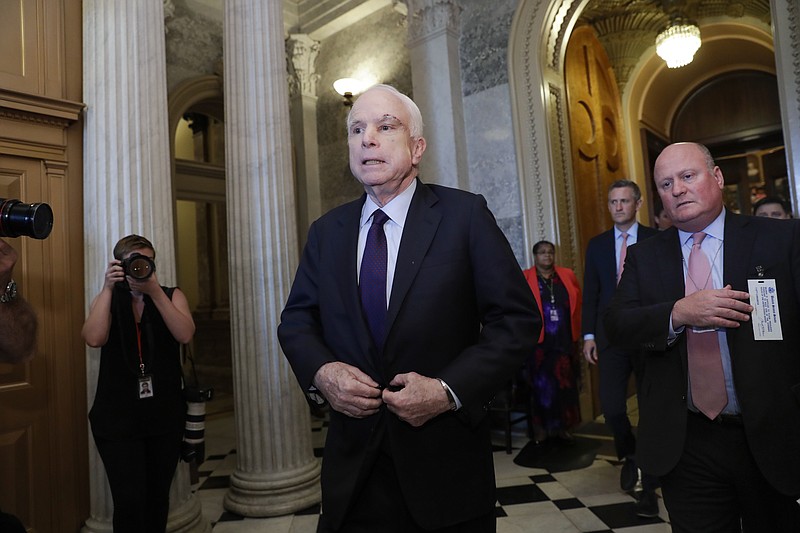Another day, another failed health care plan.
Republican U.S. senators, in the wee hours of Friday morning, failed to pass what was termed a "skinny" health care proposal in the party's effort to repeal and replace the 2010 Democrat-contrived Affordable Care Act (ACA).
We would like to say this vote would convince Republicans and Democrats it's time to work together on an entirely new health care bill. Sadly, indications from both sides are that won't be the case.
By midday Friday, Republicans already were talking about new plans that might garner the 51 votes needed to send a bill to a Senate-House conference committee. The few Democrats who were willing to say there was an iota of a problem with the ACA suggested Republicans work together with them to make needed changes in what's come to be called Obamacare.
That, of course, ignored the fact Americans voted to give Republicans a majority in the House in 2010, the Senate in 2014 and the presidency in 2016, predicated at least partly on their opposition to the passage of the ACA. Tinkering at the margins of a broken and ill-conceived plan won't fix it.
We've said before that a bipartisan bill, should one ever be crafted, will have to include concessions from both sides. Both sides will have to give up on aspects of their plans they vowed they would never do, and the American people who rely the ACA will have to understand that the ACA is not sustainable over the long haul.
The Republican senators who voted against the "skinny" bill, Susan Collins of Maine, John McCain of Arizona and Lisa Murkowski of Alaska, said they did so because it was time to work with Democrats on a solution. We wish they had voted for the bill to allow it to go to a conference and see what could be worked out, but their reasoning for not doing so aligns with our desire for a bipartisan bill.
Since they narrowly sunk the most recent bill, though, we believe it is incumbent upon the three to convince the Democrats with whom they voted about the importance of putting together an all-new bill. If they are unable to do that, their votes are as hollow as the "sounding brass or clanging cymbal" referred to in the Bible's 1 Corinthians 13.
The Republicans' "skinny" repeal bill, among other things, would have effectively ended the mandate that every American have to buy health insurance or pay a penalty, provided greater flexibility to the states through waivers, defunded Planned Parenthood and given more money to community health centers, and increased the contribution limit to Health Savings Accounts.
Since many of the tenets are what the American people have been saying they wanted, some will likely resurface in any potential bipartisan bill. But we have to get to that point first, and it unfortunately appears that's still not on the near horizon.
